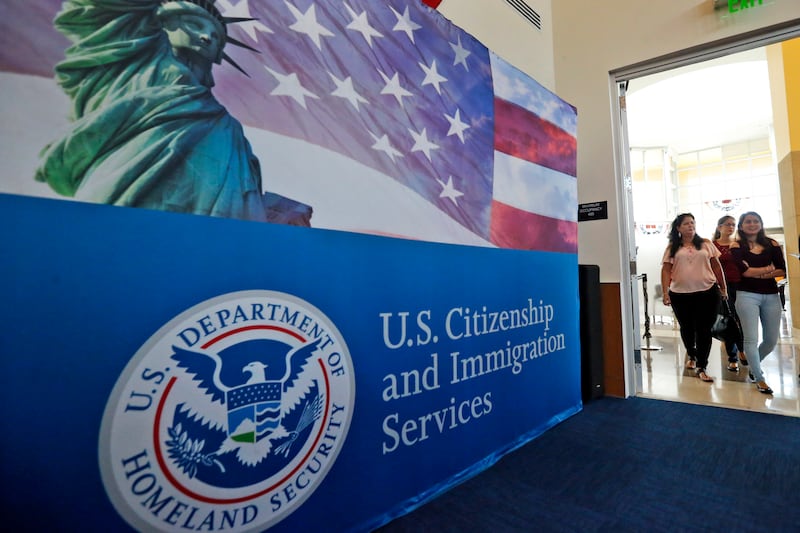- The new H-1B fee only applies to applicants residing outside the U.S.
- Visa applicants in national interest fields can receive a fee waiver.
- U.S. Chamber of Commerce's lawsuit challenges the Trump administration's fee legality.
U.S. Citizenship and Immigration Services offered more guidance on the Trump administration’s work visa rules this week.
In September, President Donald Trump signed a proclamation that imposed a $100,000 fee on H-1B visas as part of the “Buy American, Hire American” executive order.
At the time, the White House clarified this policy would be a one-time fee and apply to only new filings. Now the administration is offering more information on the freshly reformed work visa program.
When do H-1B fees apply?
On Monday, U.S. Citizenship and Immigration Services said the proclamation only applied to people who reside outside the U.S.
Current H-1B visa holders and those who filed this year will be exempt.
This fee will also not apply to those immigrants who are changing their visa status without leaving the country. That includes international college students on the F1 visa switching to H1B status after graduating.
Secretary of State Marco Rubio will make exceptions for immigrants in fields that pertain to national interest.
Immigrants will also receive a waiver on the fee if their field is of national interest like defense or artificial intelligence.
U.S. Citizenship and Immigration Services also issued guidance on paying the $100,000 fee through a government website, pay.gov.
The annual limit on H-1B visas is 65,000 with an additional 20,000 available for individuals holding advanced degrees earned at U.S. institutions.
Petitioners go through a lottery system to be eligible to apply. Employers are required to cover the costs associated with the petition and pay the immigrant worker higher or prevailing wages earned by U.S. workers with similar qualifications.
Push back on changes to the H-1B program
The U.S. Chamber of Commerce filed a lawsuit last week challenging the Trump administration’s fee.
In its legal argument, the chamber claimed the fee is unlawful because it overrides the Immigration and Nationality Act, which governs the H-1B program. Under this law, the fee needs to be based on the cost incurred by the government in processing the application.
As the Deseret News previously reported, business and community leaders in Utah and across the country warn against a fee on new applications, with concerns revolving around stifling innovation, unfairly harming smaller businesses and eroding economic benefits worth billions of dollars.
Utah Chamber of Commerce President and CEO Derek Miller called changes to the work visa program a bad idea.
“It will certainly have an impact, especially in our tech companies … advanced manufacturing,” Miller told Deseret News’ Art Raymond.
“Why do they do it? To try to get the very best talent they can.”


